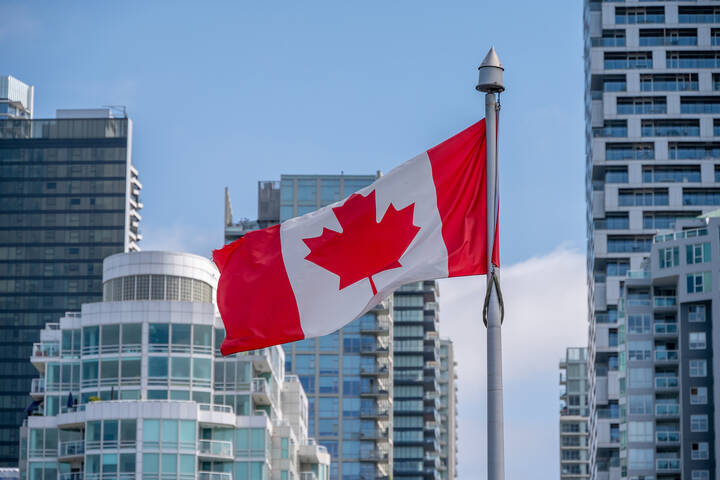
Signs of the Times: the lockout and the future
I spent a week in Maine at the end of July, mostly reading fat books but every now and then giving my mind a rest with some channel surfing. The impression I got from my sampling of pure American television was that their reputation for being not to bright seemed well deserved. In that broadcast environment, even PBS looked dopey. I found myself really missing TVO and the CBC.
But, having come to see how great the CBC is, and how important it is to our television recipes, I can't say I very much care about the current lockout. Because it's been August, and I see it as part of the vacation - the usual cancon channels on radio and TV are whacked and so what? I can handle it. It'll be over eventually. In addition, I do have lots of books to read and TV is mostly a waste of time, especially in the summer. I also have a new gig which means I'm not doing my regular home-office hours anymore, with CBC Newsworld on it the kitchen to give me something to listen to - I'm out and about and ignoring daytime TV.
Perhaps I'm just not facing the reality that it could go on and on like that hockey thing. I hear though that it could go on for at least 7 weeks - oh well. I mean, Peter Mansbridge didn't get to fly to New Orleans to report from the scene, and who really cares? (Wasn't it kind of disturbing the way all the reporters took the Boxing Day tsunami as an excuse to get out of the frigid continent for a few days ... ?) I've had CNN on the past couple of days for those hours when I am 'in the office' because I have to orient myself to the reality that Louisiana now has more in common with Bangladesh than it does Ontario. Disasters do have a certain fascination and inspire a kind of awe, but it almost seems a good thing that I'm not getting a Canadian perspective on this story.
Anyway, with that nod to current events out of the way, I want to talk about the bigger picture of this CBC dispute. I think I dreamt about it last night, having some conversation about it, where I said that it being a lockout means that the CBC in effect fired their entire staff. In the first week, lots of people joked that the CBC is actually better now than the big egos have been temporarily put out to sidewalk. This sort of division in power - management versus the personalities and support staff, suggests the CBC is a creature with two heads and can function just fine with one. That's a little disconcerting since it suggests massive and expensive redundancy. But redundancy is a good thing, so that's not really worth complaining about nor should it be eliminated.
Let's say this then: we are less than 6 months away from 2006, when we will undoubtedly be living 'in the future'. The past six years have had a sort of legendary character -first we 'partied like it was 1999', than we were living 'in the year 2000' and then we re-watched Stanley Kubrick's '2001', enjoyed the palindromic character of 2002, and the past three years, ('03, '04, '05) have still seemed like an extension of the 1990s.
But now, everything is beginning to be different. While the belief amongst marketers is that 'one should never launch a new product in August' this past month has laid the foundations for the next ten to twenty years of common perception (at least in Canada) - a time frame which makes up the first quarter of the 21st Century.
The American nightly newscasters are all gone (Rather, Brokaw, Jennings), there've now been two natural disasters which remind us of our impotence in the face of natural forces, and Hollywood ain't what it used to be, as the summer receipts show. Michael Ignatieff has gone from being an esoteric academic to being touted as the next Prime Minister (returning from Harvard to take up a post at U of T) - and if pigs fly in the next five years and that comes to pass, he'll do so under Governor General Michaelle Jean. And the CBC has had a labour disruption, which threatens the broadcast schedule of new season of an updated version of hockey.
Like the guns of August 1914, it seems easy enough to ignore these developments at the moment, not yet conscious of the bigger picture, but let's consider the following:
RenĂŠ LĂŠvesque used to be a CBC personality in Quebec in the 1950s, until the 1959 68 day (two month) strike. The fact that the French CBC strike was allowed to go for so long embittered LĂŠvesque toward Ottawa. He later said something to the effect that the English CBC would not have been allowed a two-month strike, and would have been forced to and end much sooner. The lengthy disruption in Quebec, in his opinion, showed how little English-dominated Ottawa cared about what happened in la belle province. And so Levesque went into politics ....
(As it is, only Jack Layton is demanding an immediate return of Parliament, and that's to deal with this softwood-lumber, death of NAFTA thing. All those anti-globalization protests of the late 90s now seem like so much, 'we told you so'. Ottawa clearly does not yet care about the CBC. Nor do I as I've mentioned do I - I mean, does anybody miss George Stroumboulopoulos's show? ... I can't even remember what it's called as I type this. So much for their efforts to win over my demographic).
So, point one - this lockout might have significant consequences. And in one way, it already has, since it's forced podcasting to a new level. I'm not really on the podcasting bandwagon - I find it all rather pretentious. Everyone faking up a radio-like sounding thing and treating it as this new and great thing, and it's only a trendy way to talk about an mp3 file, which have been around for what, eight years now?
I guess the difference is that mp3s have tipped past bootleg music because almost everyone in an urban core seems to have a fairly sophisticated computer and a high speed connection (and if they have a job they can afford an iPod to listen to their mp3 collection with).
You have radio stations like 102.1 CFNY The Edge offering Allan Cross's The Ongoing History of New Music podcasts, and no, they aren't the archived shows (which would be awesome), but some 1 minute clip, effectively acting as teaser advertising for the radio show. That is not worth a trend. Jumping on a downloading bandwagon and offering your readers/listeners irrelevant shit I find tries my patience - especially since one had to wait for the download to complete before being disappointed.
Via Tod Maffin's site, cbcunplugged.com, we get to listen to phone messages. Oh boy. Nevertheless, this cat is out of the bag. While the content is rather lame, I'm excited by the fact that the employs have embraced the possibilities of this type of broadcasting. The upcoming CBC Unlocked will be something worth checking out.
It shows creative thinking that the management seems to lack, and it also seems like the type of thing which is allowed to happen because it's unfiltered by office politics and bureaucracy and the like. Whatever happens at the CBC after this is all over, I hope they bring this back the mother corp.
(Which raises another thing: according to iTunes, the CBC3 podcast is number 1 in terms of popularity. It seems to be unaffected by the labour dispute. Why?)
Last week I listened to a couple of mp3 files from Australian radio of my favorite thinker, Mr. John R. Saul. He was on he tour promoting his globalization book, and he brought up his point that the economics of the past 25 years reminds him of 18th Century mercantilism. And so perhaps it follows that the bloging reminds me of the type of pamphleteering that helped spark the American and French Revolution. In those days, you wrote something, you went to a printer, and it was on the street in an hour. In the two centuries since, the middlemen of editors and marketers filled the offices of the publishing houses until reject letters became a writer's rite of passage.
In his previous books, Saul likened the explosion of instant publishing in the 18th Century with a trend where a public of common people began trying to make themselves heard over the dominant voice of those in power. Post-modernism, inasmuch as it was the academic expression of trying to express what had remained unexpressed (because it had been put down by a dominant voice, in this case, the Modernist aesthetic and philosophical ideology) is nothing more than the first wave of people expressing themselves to those in power. (Ironic then how pomo has become noxious power itself). First radio and then television gave voice to the whole other segment of society which had been discriminated against by those who thought they were better than average. Jerry Springer's infamous show isn't so much a parade of 'trash' as it is a reminder of human variety, and especially of the need for adequate social and education programs.
Blogs and podcasting are continuations of this trend. As Saul wrote it, when things get too literary and language becomes too controlled by certain experts (whether post-modernist writers who can't string a proper sentence together, or the rise in corporate ways of speaking so that every idea becomes inarticulate) there is a backlash, a corresponding balancing rise in the speech of everyday.
Humans are creatures of sound - and it is only with training that we become creatures of print. The rhythms of everyday speech will always seem more natural and be more effective at communicating than any purple prose from some show-off snob.
So I think blogs are great for that since their style is one that lends itself to being written as if it were spoken. I certainly think this way when I write - I'm confident enough in my ability to write well that I see no need to show off and am thankful to avoid the embarrassment of academic writing.
And now that a medium has come along which allows both text and voice files to be easily broadcast - we're witnessing some kind of media utopia, and I remind you that utopia means 'no place' and the internet certainly has no place, and like the universe, having no centre, it is everywhere. Naming his perfect place utopia was a way of Thomas More to say that perfection is impossible, but perhaps that is true only when talking about material, human things, and not immaterial shadows of electricity.
For now we have a medium by which a locked-out staff at a national broadcaster can continue writing and speaking, and we now choose to download it and listen to it when we want. We are no longer forced to wait until their re-broadcast time or pay $20 if we want to hear it again. For one thing it's shameful that the CBC last year stopped providing mp3 files of their shows; let's hope this populism amongst their worker bees will break their outdated media models once and for all once everything gets back to normal.
And so, the last four months of the mid-decade year will be interesting times, as we watch a new status quo begin to develop. While the CBC lockout seems insignificant, it is part of a bigger picture that includes new hockey, new politics, new ways of speaking and listening to the masses, and new disasters that remind us of bigger pictures and long-term consequences. Whether or not the egos at the CBC return to their soapboxes anytime soon, our lives are way more interesting going into this autumn than they were a year ago. Hollywood may be complaining about a summer slump, and no wonder. It's far more entertaining and engaging to simply pay attention to events.
Latest Videos
Latest Videos
Join the conversation Load comments







